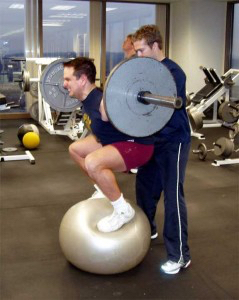How much protein should I consume every day?
As ever there is no hard or fast answer to this one. It all depends upon your goals.
However, if you are undertaking some form of resistance training programme (as we would advise every healthy adult in the world to perform) then our recommendations could range from as low as 0.75gms per lb of lean body weight all the way up to 3gms!
Should I consume a protein shake?
Nobody needs a protein shake. However, they are extremely convenient and in many cases cost effective. And be thankful this isn’t the 1980s when the only products available could double as wallpaper paste both in texture and taste!
Why would I consume protein intakes greater than many standard RDAs (0.4gm/1lb)?
There are increased needs for protein by exercisers and those in an adaptation period (change in body composition). Also, for some, protein provides a greater level of satiety (feeling of fullness) and can lead to greater satisfaction with recommended caloric intakes.
Why would exercisers need more protein than sedentary individuals?
Due to an adaptation phase (fat loss and/or muscle gain), increased energy demand due to increased activity, increase in protein activity and when energy needs are not met by carbohydrate or fat intake due to caloric reduction below maintenance.
Are high protein diets good for someone attempting to lose fat and/or gain lean body mass?
Yes.
The word “protein” derives from the Greek “prota”, and before you think I am starting to sound like the father in “My Big Fat Greek Wedding” this has relevance as prota means OF PRIMARY IMPORTANCE. Without adequate protein cosmetic issues such as losing 1 stone (with attendant impossible to shift localised fat deposits) pale into comparison as too many times I have seen (almost always women) end up with depressed thyroids that have a knock on effect on their estrogen/progesterone hormonal axis (and consequently impair fertility, vitality, skin tone etc…the negative list can run into the dozens).
If this isn’t enough for you let’s also take note that protein-
- Maintains muscle mass whilst dieting. Not important for a woman you may think, but oh yes it is! 1lb of muscle equals an additional 50calories a day onto your metabolism. If you lose 5 lbs of muscle with excessive dieting (a very common error) your metabolism will slow down by 250cals a day – which is a massive 1750 calories a week!
- The consumption of carbohydrates and fats actually burn up less than 5% of the ingested calories in order to properly digest them. If you eat protein a whopping 30% of the calories you consume are burned up simply digesting the food!
Pretty compelling stuff I think.
Is excess protein stored as fat?
Yes, but if you refer to the above answer you will see that it’s harder to store protein calories as fat in comparison to both carbohydrate and fat calories.
It also depends upon exactly what you are eating the protein calories with. If it’s some simple sugars that generate a spike in your body’s insulin production then you are far more likely to convert the protein calories into fat storage than if you ate the protein by itself (or even with additional fat consumption).
Are all protein shakes the same?
Definitely not.
Protein shakes come in the form of many proteins – whey, casein, egg, soy, pea and even the appetisingly sounding blood protein! Each have their respective merits and are suitable for different needs at different times of the day. Whey for example, is ideal post workout as it is the rapidly absorbed of all the protein powders.
Let’s also bear in mind that the quality of all protein powder manufacturers are most certainly not equal. Always try to opt for a reputable brand over generic store brand protein for instance.
Are there any problems with high-protein diets?
If you are healthy, no.
I don’t want to look like Schwarzenegger so I don’t eat much protein. Your advice is wrong for me!
Then you are an idiot who will always have stork limbs and a flabby body. Get back on your bosu ball.
More protein won’t help this guy!!
Article By Nick Mitchell, “London’s Best Personal Trainer” (Time Out London 2010).




